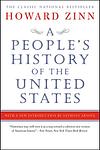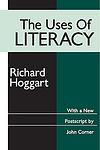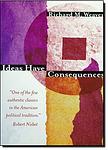The Greatest "Political, Civilization" Books of All Time
Click to learn how this list is calculated.
This list represents a comprehensive and trusted collection of the greatest books. Developed through a specialized algorithm, it brings together 300 'best of' book lists to form a definitive guide to the world's most acclaimed books. For those interested in how these books are chosen, additional details can be found on the rankings page.
Genres
The "Political" category of books encompasses works that explore the theory, practice, and history of government and politics. These books may cover topics such as political ideologies, political systems, political institutions, political movements, and political leaders. They may also examine the relationship between politics and other areas of society, such as economics, culture, and international relations. Political books can be both informative and thought-provoking, offering readers insights into the complexities of the political world and the challenges of governing in a democratic society.
The category of "Civilization" in books encompasses works that explore the development, evolution, and impact of human societies and cultures throughout history. These books may cover topics such as politics, economics, religion, art, and technology, and may examine the rise and fall of civilizations, the interactions between different cultures, and the ways in which societies have shaped and been shaped by their environments. Overall, the category of "Civilization" offers a broad and fascinating perspective on the human experience and the complex forces that have shaped our world.
Countries
Date Range
Reading Statistics
Click the button below to see how many of these books you've read!
Download
If you're interested in downloading this list as a CSV file for use in a spreadsheet application, you can easily do so by clicking the button below. Please note that to ensure a manageable file size and faster download, the CSV will include details for only the first 500 books.
Download-
1. Waiting for the Barbarians by J M Coetzee
The novel is set in a small frontier town of an unnamed empire, where the magistrate lives a life of civil service and relative peace. His world is disrupted when the Empire declares a state of emergency due to rumors of barbarian uprising. The magistrate becomes a critic of the Empire's brutal and inhumane methods of dealing with the perceived threat, which leads to his arrest and torture. As he tries to understand his role in the vast political machinery, he also grapples with questions of power, justice, and humanity.
-
2. The Labyrinth of Solitude by Octavio Paz
This book is a profound and vivid exploration of Mexico's character, culture, and identity. The author delves into Mexico's history, politics, and psyche, examining the country's deep solitude and its impact on the national character. The book provides a comprehensive analysis of Mexican society, its myths, symbols, and rituals, offering a deep understanding of the Mexican people's unique way of perceiving the world. It also discusses the influence of the United States on Mexico and the complex relationship between the two countries.
-
3. A People's History of the United States by Howard Zinn
This book is a comprehensive overview of American history from the perspective of the marginalized and underrepresented groups, rather than the typical focus on political elites. It covers a wide range of historical events and periods, including the discovery of the continent, the founding of the United States, slavery, the Civil War, and up to the modern era. The book challenges traditional narratives and provides a critical and thought-provoking look at the nation's past.
-
4. The Uses of Literacy by Richard Hoggart
"The Uses of Literacy" is a sociological study that explores the impact of mass media and popular culture on traditional working-class values and communities in Britain during the mid-20th century. The author combines personal memoir with scholarly analysis to examine how the spread of American consumer culture and the rise of mass media have influenced British society, especially among the working class. The book serves as a critique of the commercialization of culture and the erosion of authentic, local cultures and traditions.
-
5. Sapiens: A Brief History of Humankind by Yuval Noah Harari
This book provides a comprehensive exploration of the history of the human species, tracing back from the earliest forms of Homo Sapiens to the modern day. It delves into evolutionary biology, the development of cultures and societies, and the rise of major ideologies and technologies. The book also discusses the future of the species, posing thought-provoking questions about our roles and responsibilities in a rapidly changing world.
-
6. Future Shock: The Third Wave by Alvin Toffler
The book is a compelling analysis of the future, predicting the rise of a new society characterized by rapid technological change, globalization, and increased human connectivity. The author argues that these changes will lead to a "third wave" of civilization, following the agricultural and industrial revolutions, which will fundamentally transform our lives and institutions. He discusses the potential impacts of these changes, including social, economic, and political upheavals, and how we can prepare for and adapt to this future.
-
7. Ideas Have Consequences by Richard M. Weaver
"Ideas Have Consequences" is a philosophical work that explores the societal and cultural impacts of ideas, arguing that the decline of Western society can be traced back to the rejection of absolute truth. The author posits that this rejection has led to moral relativism, materialism, and a culture of self-centeredness. He advocates for a return to traditional values and a recognition of universal truths as a means to restore balance and purpose to society.
-
8. I'll Take My Stand by Twelve Southerners
"I'll Take My Stand" is a collection of essays by twelve authors who passionately defend the agrarian lifestyle and traditional Southern values against the encroachment of industrialization. They critique the effects of the industrial revolution on Southern society, arguing that it undermines the region's culture, economy, and environment. The book is a plea for the preservation of the agrarian way of life and a critique of the materialistic, consumer-driven culture that they believe is eroding the soul of the South.
-
9. The Power Elite by C. Wright Mills
"The Power Elite" is a sociological study that explores the relationships and interconnections among the political, military, and economic elite in the United States, suggesting that they form a distinct, centralized ruling power structure. The author argues that this group operates outside of the democratic process and has significant influence over the nation's policies and decisions. The book also discusses the implications of this power concentration on American democracy and society.
-
10. Democratic Vistas by Walt Whitman
This book is a comprehensive exploration of American democracy from a philosophical perspective. The author argues that while the United States has made significant progress in establishing a democratic society, it still has a long way to go. He emphasizes the importance of individualism and spiritual development in achieving a truly democratic society, and critiques the materialism and corruption he sees in American culture. The book also discusses the role of literature and poetry in shaping and reflecting the nation's democratic ideals.
-
11. Anti-intellectualism in American Life by Richard Hofstadter
This book is a critical examination of the historical trend of anti-intellectualism in American society from the 19th century to the 1960s. The author explores how this disdain for intellectual pursuits and glorification of practical skills has influenced various aspects of American life including politics, business, education, and religion. The book also analyzes the roots of this phenomenon, linking it to populist movements, religious fundamentalism, and the American suspicion of elites and expertise.
-
12. Protestant, Catholic, Jew by Will Herberg
This book is a comprehensive exploration of religious diversity in the United States, particularly focusing on the three major faiths: Protestantism, Catholicism, and Judaism. The author delves into the historical roots and evolution of these religions, their influence on American culture and society, and how they have shaped the nation's identity. The book also examines the unique American phenomenon of religious pluralism and how it impacts the country's social and political life.
-
13. The Clash of Civilizations by Samuel P. Huntington
The book presents a theory that people's cultural and religious identities will be the primary source of conflict in the post-Cold War world. The author argues that future wars will be fought not between countries, but between cultures, and that Islamic extremism will become the biggest threat to world peace. The book also explores the shifting balance of power at the global level and predicts a clash between the West and the Confucian-Islamic states.
Reading Statistics
Click the button below to see how many of these books you've read!
Download
If you're interested in downloading this list as a CSV file for use in a spreadsheet application, you can easily do so by clicking the button below. Please note that to ensure a manageable file size and faster download, the CSV will include details for only the first 500 books.
Download











